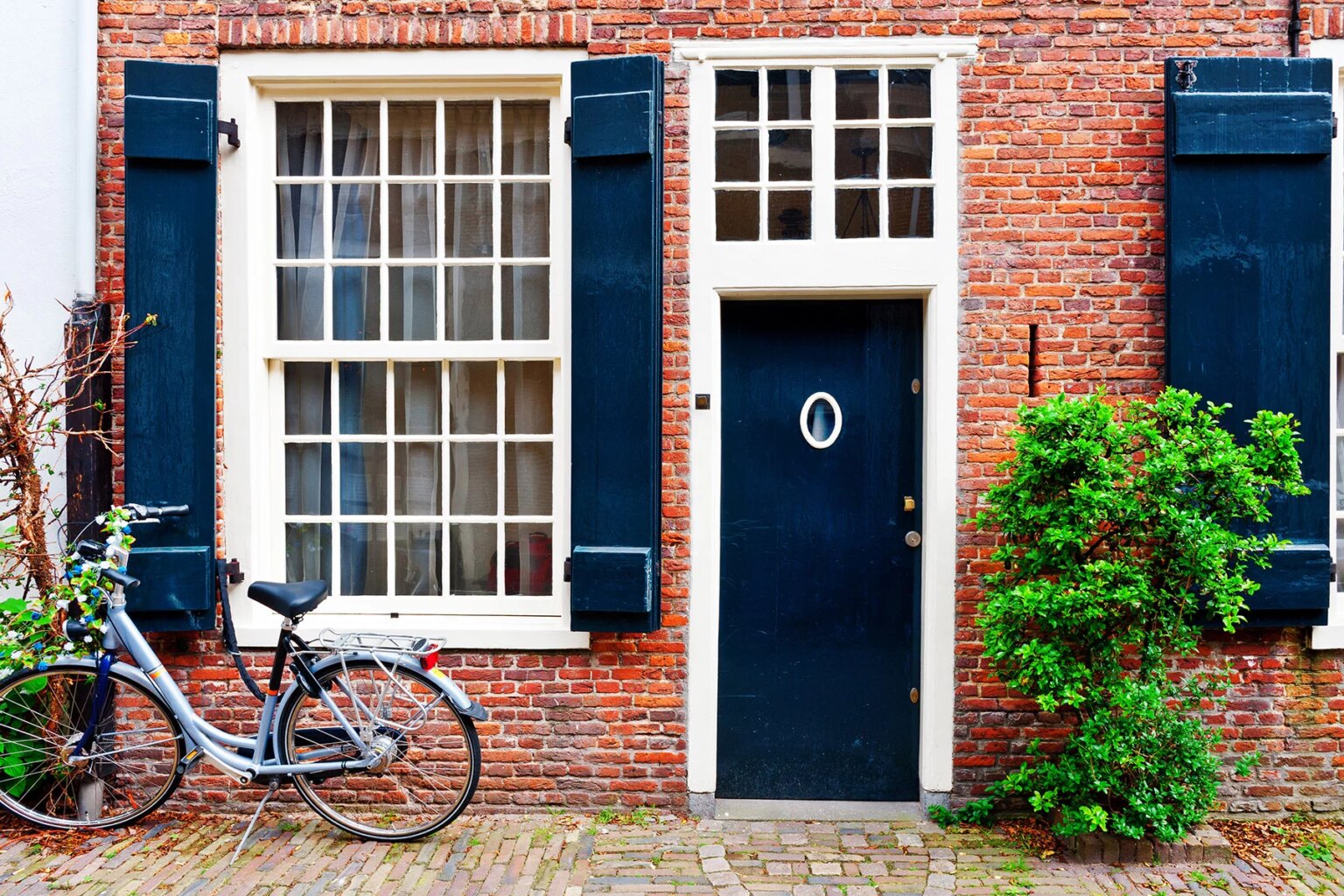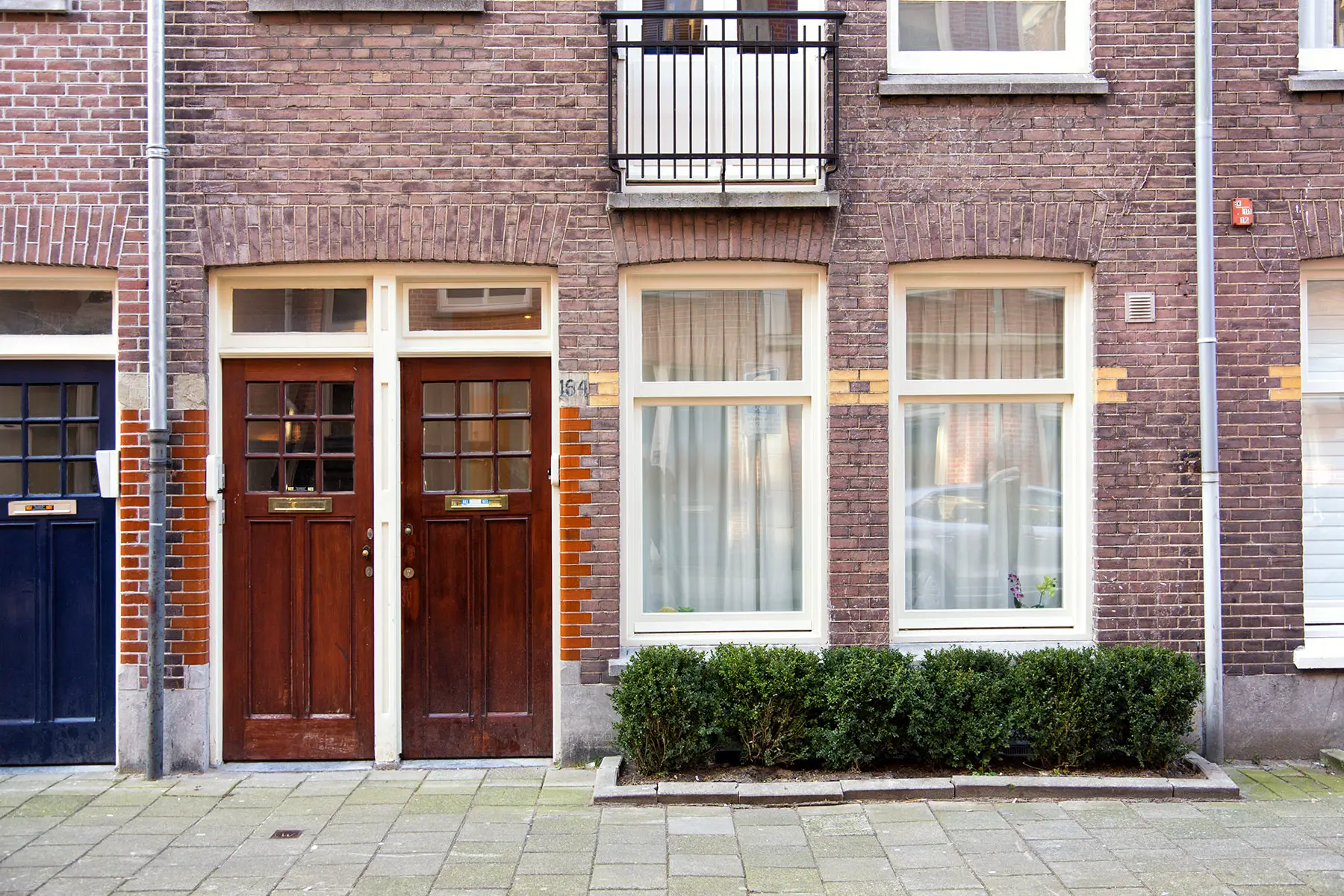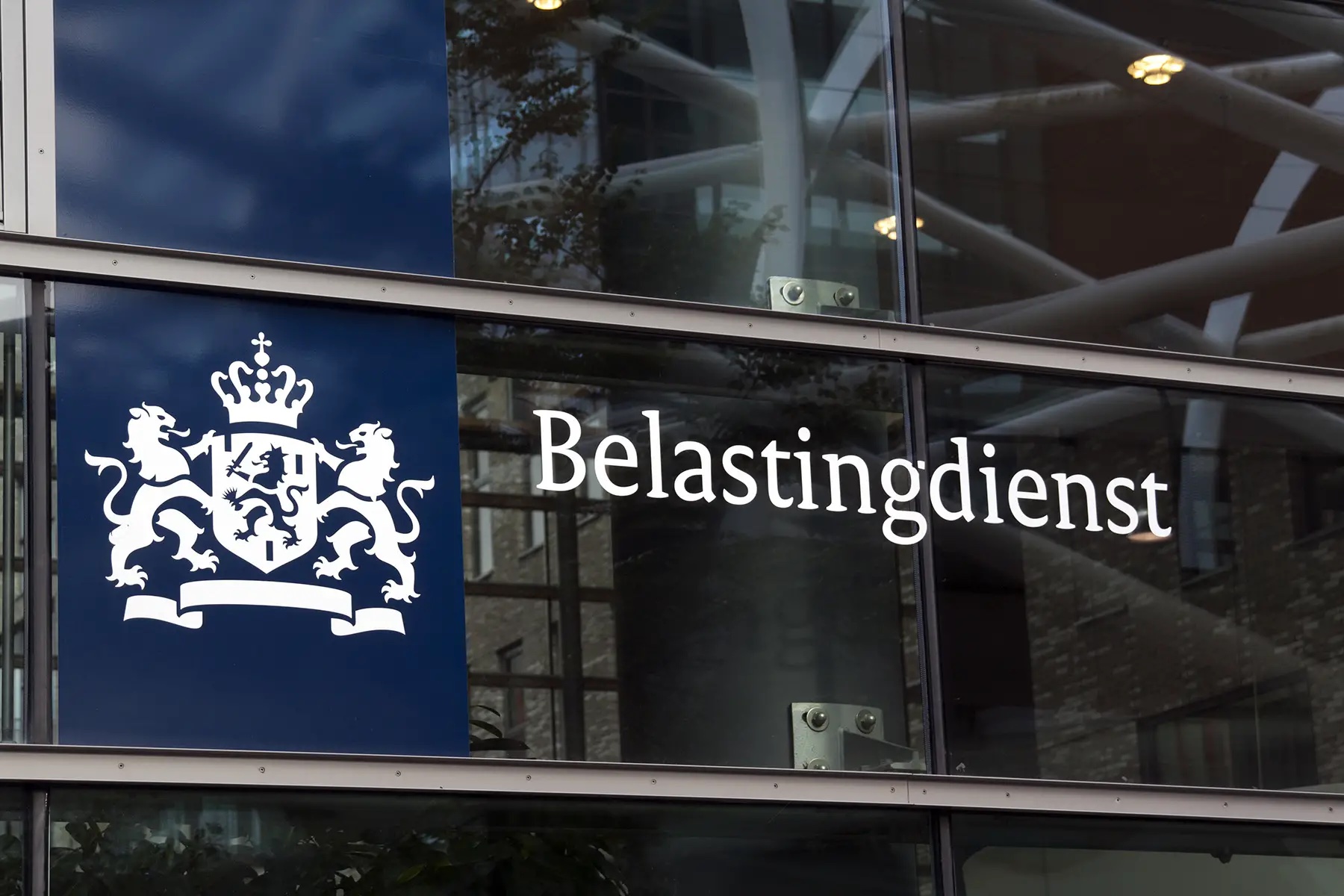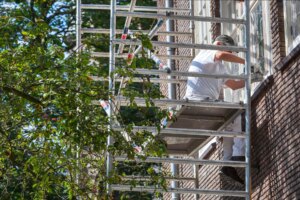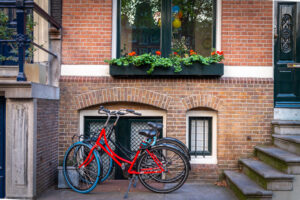Buying a home in the Netherlands is a big financial leap of faith, and most people rely on financing to do so. As an international living in the Netherlands, getting a mortgage in a new country can be confusing. But once you understand the steps and requirements for the different Dutch mortgages, you’ll be on your way to becoming a homeowner.
To help you understand the various financial options available for residents and non-residents looking to purchase a property, as well as the current mortgage rates in the Netherlands, this article covers the following topics:
- Mortgages in the Netherlands
- Can you get a mortgage as a foreigner in the Netherlands?
- Mortgage rates in the Netherlands in 2025
- How much can you borrow for a Dutch mortgage?
- What types of mortgages are available in the Netherlands?
- Green mortgages in the Netherlands
- How to apply for a mortgage in the Netherlands in 2025
- The National Mortgage Guarantee (NHG)
- Mortgage fees and costs in the Netherlands
- How much are Dutch property taxes?
- Do you need property insurance to get a mortgage in the Netherlands?
- Mortgage repayments
- Refinancing a mortgage in the Netherlands
- Useful resources
ABN AMRO
Are you an expat looking to buy a house in the Netherlands? While the process may be different from what you’re used to, ABN AMRO is here to help. You can use their online mortgage calculator or make an appointment with a mortgage advisor. With ABN AMRO, buying a house may be much easier than you thought.
Mortgages in the Netherlands
Dutch mortgages have been a hot topic of late, with interest rates fluctuating considerably over the past few years. Having reached an all-time low in the early 2020s, they rose sharply to their highest rate in a decade in 2022–23 but have now started to slightly decline.
Transactions are now on the rise again after dipping a couple of years ago, and the total mortgage volume at the end of 2024 was up 34.4% on the previous year.
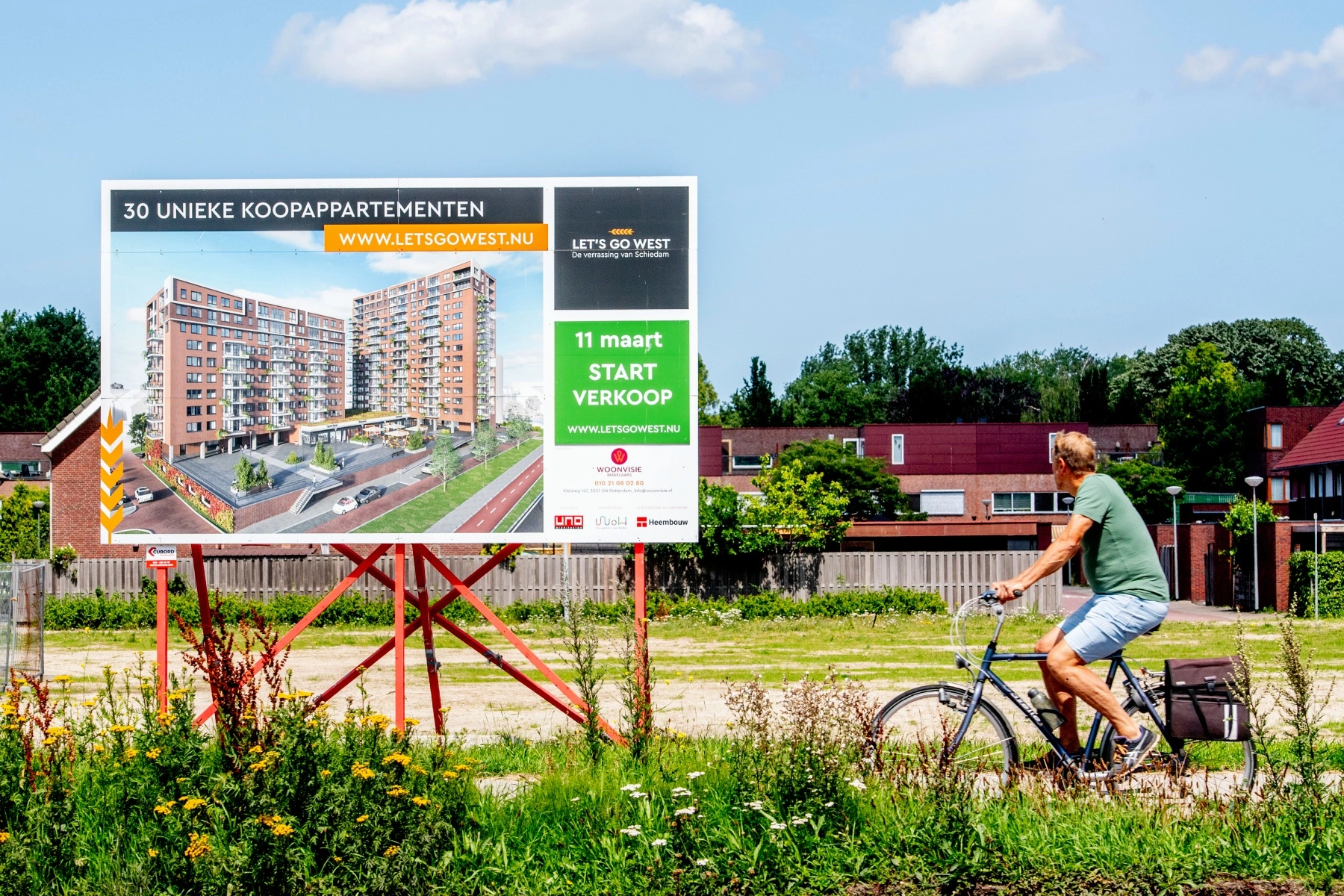
Can you get a mortgage as a foreigner in the Netherlands?
Technically, anyone with a residence permit, temporary or permanent, has the same formal rights when it comes to applying for a mortgage. That said, if you are new to a job, without a permanent contract, self-employed, on a low income, or of a non-EU nationality, it may be harder to get a loan or financing on 100% of the purchase price.
The requirements change depending on the bank, but generally, you need:
- A valid passport
- A BSN (citizen service number)
- Proof of permanent employment in the Netherlands or proof of income
- For employees, but also temporary workers or PhD students: a statement from your employer (werkgeversverklaring)
- To have lived in the Netherlands for six months (only required by some providers)
- Three years of tax returns and accounting for self-employed residents
It’s worth noting that if you have been self-employed for less than three years it can be very hard to get a mortgage approved.
Both EU and non-EU citizens are entitled to take out a home loan in the Netherlands, but the requirements may be stricter for non-EU citizens.
Banks may also not accept to provide non-permanent residents with a mortgage covering 100% of the purchase price if that price is above the National Mortgage Guarantee (Nationale Hypotheek Garantie – NHG), which is €450,000 in 2025.
Unfortunately, the Mortgage Credit Directive, brought in by the EU in 2015, also made it difficult for banks to offer mortgages to internationals with income in a non-EU currency. This is due to banks having to absorb the risk of currency fluctuations.
However, banks like ABN AMRO found a solution to this problem: they now take into account only 90% of the non-euro income to assess your maximum mortgage amount. This has meant internationals earning in another currency have more options.
Do note, however, that getting a mortgage for a second home to rent is very difficult. Read about buy-to-let mortgages in the Netherlands for more information.
Mortgage rates in the Netherlands in 2025
Mortgage interest rates in the Netherlands are based on the term of the fixed period and the risk category of the loan. This risk category is based on the loan-to-value (LTV) ratio: the amount of the loan compared with the value of the property. The lower your LTV, the lower your interest rate.
ING
Trust ING for your banking in the Netherlands. ING provides a wide range of services, including bank accounts, savings, loans, investments, insurance, and more. With tools to compare and calculate your options, they help you make the right financial decisions. Visit ING online and let your money go further.
There are two types of interest rates in the Netherlands: fixed or floating. While floating rates are often lower, there is always the risk that they can increase.
For current mortgage rates, check ABN AMRO’s website for the latest figures.
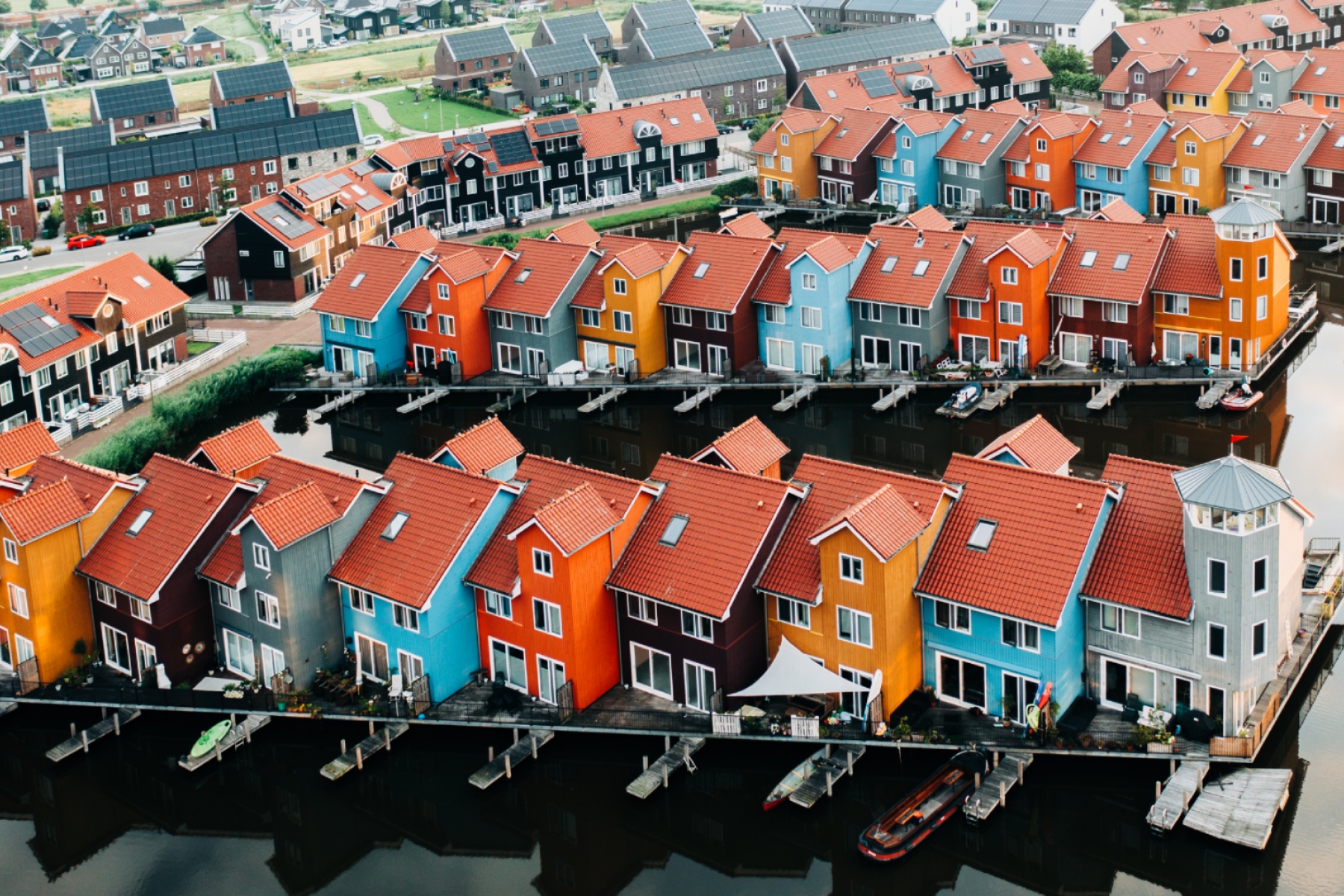
If your house price increases you may be eligible for a lower interest rate. You can apply for a valuation of your property – known as the WOZ value (WOZ-waarde) by contacting your municipality.
How much can you borrow for a Dutch mortgage?
As a rough guideline, you can borrow up to five times your gross salary, although dual-income households can typically borrow more. If you buy a home with renewable energy systems, you can borrow up to 106% of the property’s value.
As of 2018, the Dutch government placed restrictions on the loan-to-value amount it is possible to borrow. Whereas before you could borrow 101% of the value, the maximum mortgage is now 100% of the property price. This means that any additional costs, like fees associated with the purchase or renovations, have to be financed with your savings.
Good news, though: keep in mind that you will be able to borrow more if you enjoy the 30% tax ruling on your income.
Netherlands mortgage calculator
You can estimate what your maximum mortgage is, and the length and price of the repayments with an online calculator from services like:
Bear in mind that these calculations can only act as a guide. You should talk to your provider or a mortgage advisor before you take out a mortgage.
What types of mortgages are available in the Netherlands?
While there are many different types of mortgages available in the Netherlands, the most common are:
Linear Mortgage (lineaire hypotheek)
You repay a fixed amount of your loan each month, which covers the interest and a slice of the capital. Repayments occur at fixed times during the mortgage period. As you pay back the loan, the amount you pay in interest decreases.
Annuities mortgage (annuïteiten hypotheek)
The borrower repays a fixed amount each month. In the beginning, you repay a small amount of the loan and a higher amount of interest (meaning you can deduct more from your income tax) and gradually you will pay more of the loan and less of the interest.
Only these two kinds of mortgages are eligible for income tax deductions.
Some other mortgage types include:
- Interest-only mortgage (aflossingsvrijehypotheek): Where you pay back only the interest, not the loan. Banks only permit this under special circumstances.
- Credit mortgage (krediethypotheek): Similar to a normal bank account, you can withdraw and deposit money and pay interest on the amount you borrow
- Savings mortgage (spaarhypotheek): Links your savings account to your mortgage. Instead of repayments, you deposit money and pay back the mortgage in whole at the end of the term.
Green mortgages in the Netherlands
If your new home contributes towards a greener lifestyle in the Netherlands, you may be lucky enough to apply for a green mortgage (duurzaam wonen hypotheek).
Also known as a sustainability discount, this program helps you receive a reduced rate on your mortgage. To be eligible, you must:
- Buy a home-rated energy label A or B
- Renovate a home to energy label A or B and register the new label within two years of the start of your fixed-rate
- Buy a newly built home
Various schemes that will give you access to a green mortgage. For more information, check with your local bank or read more on ABN AMRO’s website.
How to apply for a mortgage in the Netherlands in 2025
Mortgages in the Netherlands may be arranged directly with lenders (typically the larger banks) or via a mortgage advisor (hypotheekadviseur). The application process for expat mortgages generally works the same as for Dutch nationals.

Through a bank
- ABN AMRO (offers expat mortgages in the Netherlands and has an English-language mortgage sections on their website)
- ING (English and Dutch)
- Rabobank (mortgages section in Dutch only)
- SNS (Dutch only)
Increasingly, pension funds, insurance companies, small banks, and foreign mortgage providers also offer competitive mortgage rates.
Through a mortgage advisor
In the Netherlands, mortgage advisors or brokers act as an intermediary between you and the mortgage provider, to advise you on the best fit for your finances. This is especially useful if you don’t speak Dutch or are new to the Dutch property market. International-friendly mortgage advisors in the Netherlands include:
The National Mortgage Guarantee (NHG)
The NHG is a scheme that guarantees repayment of a mortgage, even if the borrower becomes unable to do so directly. It is only available for Dutch mortgages up to a certain value – €450,000 in 2025.
Should you become unable to repay the mortgage, the NHG ensures that:
- You are not liable for any sum over the value of your property when it is sold
- The lender is repaid in full
This means that if, for example, you become unemployed and can no longer repay your mortgage, your property will still be seized and sold.
However, if the value of your property is lower than the value of your mortgage (e.g., your home sells for €300,000 but your mortgage is €350,000), you will not be liable for the difference. The NHG reduces the cost of lending, and lenders in turn offer NHG participants a lower interest rate, typically up to 0.5% lower.
The application fee for the NHG is 0.4% of the mortgage value. This means that if you borrow €200,000 for a mortgage backed by the scheme, you would pay a fee of €1,200.
Mortgage fees and costs in the Netherlands
As well as the price of the property and the mortgage repayments, there are other costs involved in taking out a mortgage. These are usually calculated with the value of the property, plus VAT (BTW in Dutch). However, some mortgage services charge a set fee which includes the fee to the Dutch mortgage lender.
Costs can include:
- Mortgage advice (Hypotheekadvies): Anywhere between €100–3,500
- Mortgage contract (Hypotheekakte): Between €500–1,000
- Notary charges (Notaris): Between €1,00–3,000
- National Mortgage Guarantee (NHG): 0.4% of the mortgage value (see above)
- Valuation fee (Taxatierapport): Between €400–800
- Transfer tax (Overdrachtsbelasting): 2% of the purchase price (see below)
- Insurance costs
How much are Dutch property taxes?
When buying a property in the Netherlands you must also pay a transfer tax which is 2% of the purchase price (10.4% for commercial buildings.)
Property tax in the Netherlands (onroerendezaakbelasting), is calculated on the deemed rental value of the property, otherwise known as the WOZ value, or immovable property tax. Each municipality determines its property tax rate, however, this generally ranges between 0.1% and 0.3% of the value.
If you rent out a place in the Netherlands that you own, the value is taxed, minus the mortgage amount. This is taxed annually as part of your income from savings and investments.
Keep in mind that a higher WOZ value generally means higher taxes. However, those with a mortgage backed by the NHG can effectively lower their interest rates by entering a lower-risk category on the mortgage.
Tax-deductible costs
As long as you are paying taxes in the Netherlands, it is possible to claim a tax refund on mortgage interest payments. This is possible, provided the mortgage is a capital repayment mortgage (not an interest-only mortgage) and the property is your main residence.
Some of the costs listed above are also tax-deductible including:
- Valuation fee
- Mortgage broker’s fee
- Administrative charges for arranging the mortgage
- Notary’s fee
- NHG fee
- The mortgage interest
However, if you choose to rent out your property, you are no longer eligible for tax deductions on the mortgage payments. And of course, all tax deductions fall away if you are no longer resident in the Netherlands.
Additionally, it is worth looking into the 30% ruling, a tax exemption for internationals hired abroad to work in the Netherlands. This ruling may have a positive impact on your ability to get a mortgage or the amount you might be eligible for. At least it has a very positive effect on the amount of income tax you pay – so it’s a good idea to bring it up with a mortgage adviser.
Do you need property insurance to get a mortgage in the Netherlands?
You will likely need to have proof of homeowners insurance (woonhuisverzekering) when getting a mortgage in the Netherlands. Some providers often offer a discount if you take out both your mortgage and home insurance with them. A standard policy covers fire, storm, flood, and theft, although the criteria can vary.
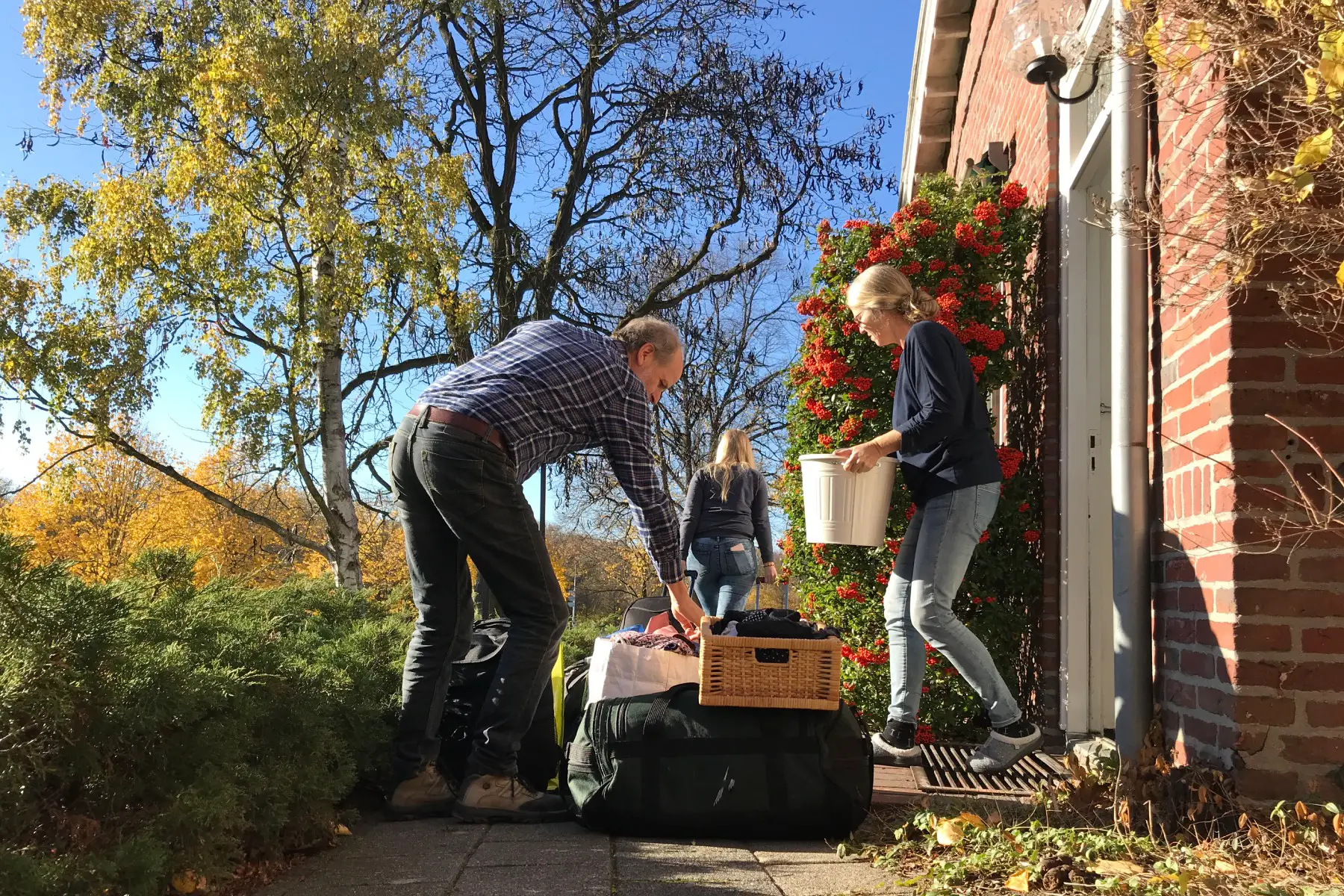
If you buy an apartment, the Association of Owners (Vereniging van eigenaren – VVE) generally arranges a home insurance plan. Apartment owners generally share the costs equally amongst each other.
Other types of insurance can affect your mortgage agreement in the Netherlands, including contents insurance and life insurance. A high-value contents policy (kostbaarhedenverzekering) is also mandatory to cover rare or expensive possessions.
Many insurance companies will offer a discount if you can present a BORG certificate – a document showing that your property has adequate protection against burglary and certified security equipment installed.
Providers of home and contents cover in the Netherlands include:
Mortgage repayments
Aside from the set monthly credit and interest payments, it is also possible to make additional payments to reduce your interest rate. Most banks allow annual repayment of 10–20% of the outstanding mortgage without a fine.
Doing so depends, however, on the type of mortgage you have. With an interest-only (aflossingvrij) mortgage, for example, you pay no repayments on the actual loan and only pay monthly interest. Making lump-sum or extra payments on this type of mortgage may carry penalties. However, if your mortgage allows for extra payments, the benefits of a longer-term lower interest rate can lead to real savings over time.
Refinancing a mortgage in the Netherlands
If you already own property in the Netherlands, refinancing your mortgage can be a great way to reduce your mortgage costs. This new mortgage repays your existing mortgage in full so you can start making monthly payments with a different plan.
Independent mortgage advisers have access to all lenders in the Netherlands and can compare rates and conditions for you to get the best deal. But there are downsides, too.
Here are some of the pros and cons of refinancing to help you make your decision:
Pros of refinancing a Dutch mortgage
- Lower monthly payments: Shopping around for a lower interest rate can help you reduce your monthly spending. A further discount on the interest rate may apply thanks to a lower loan-to-value due to increased property prices. These savings might be affected if you sell within a few years of refinancing.
- Reducing the term of your mortgage: If you opt to keep your monthly repayments the same, you could pay off your mortgage faster. For example, a 30-year mortgage could be paid off in 20 years.
- Transferring to a more secure mortgage: If you have a mortgage with a variable interest rate, where your interest rate fluctuates according to, for example, the Euribor rate, you could take advantage of low-interest rates by transferring to a fixed-rate mortgage. This will also help you avoid the risk of payments rising in the future.
- Accessing equity on your home: Taking out some equity from your refinancing can help you cover a major expense, such as home improvements
Cons of Dutch mortgage refinancing
- Costs: The costs involved with setting up a new mortgage may offset any savings you might make from lower interest rates. They may include intermediary fees, compensation to your existing lender for loss of interest, and notary fees if you switch lenders.
- It can increase debt: If you refinance your mortgage to tap into home equity, it can be a slippery slope to ever-increasing debt, so you should make sure that you can cope with the extra financial responsibility.
Useful resources
- NHG – more information on the National Mortgage Guarantee in English
- Notaristarieven.nl – list of Dutch notaries
